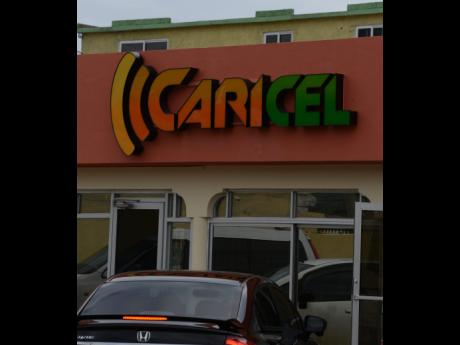Caricel gets temporary reprieve, vows to fight Government
Telecommunications company Caricel has vowed to use “every resources at our disposal” to fight the Government’s decision to shut down its operations.
“It is a travesty of justice that our Government could find no other way to address whatever concerns it may have had about the company’s operations,” lawyers for Symbiote Investment said in a statement yesterday.
Caricel’s defiance came after the nation’s second highest court brought a temporary halt to the Government’s move to revoke the telecommunications licence granted to its parent company, Symbiote Investment.
The Court of Appeal, in a ruling handed down yesterday, gave Symbiote Investment Limited the go-ahead to challenge a decision by the Supreme Court.
Nearly two weeks ago the Supreme Court rejected Caricel’s application for judicial review of the decision by then energy minister Dr Andrew Wheatley to revoke the telecommunications licence granted to Symbiote Investment.
The Supreme Court also refused the company’s application for leave to challenge the decision before the Court of Appeal.
Following the ruling, Attorney General Marlene Malahoo-Forte announced that the Government was moving to complete the process of revoking Caricel’s telecommunications licence.
But yesterday lawyers for Symbiote Investment took their case to the Appeal Court where they obtained a ruling that stays Wheatley’s revocation order until January 14 next year.
Lawyers for the Government and Symbiote are to return to court on that date for a hearing on whether the company’s application for leave should be allowed.
Symbiote complained, in the statement, that its entire investment in Caricel – valued at $9 billion – has been placed in danger because of an “alleged failure to disclose information concerning the signatories on a bank specimen signature card.”
In 2016, the Andrew Holness administration decided to proceed with the granting of cellular licence to Symbiote despite a recommendation from the contractor general not to do so.
However, in March last year Wheatley told the House of Representatives that Symbiote had not complied with all the conditions that were attached to its domestic mobile spectrum licence. Among the issues he identified were the company’s failure to address the matter of outstanding fees.
There were concerns, too, that some of Jamaica's international partners -- believed to be the United States, Canada and Britain -- were reportedly adamant that with the ownership team that existed at the time, Symbiote was not fit and proper to operate in the telecommunications sector.
But the company countered, saying it has not been contacted by any of the government agencies that conducted the two-year background investigations.

